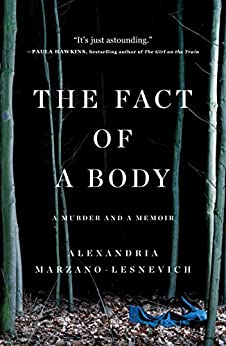More on this book
Community
Kindle Notes & Highlights
Read between
September 23 - September 30, 2020
All of these possible causes are causes in fact. The causes in fact are endless. The idea of proximate cause is a solution. The job of the law is to figure out the source of the story, to assign responsibility. The proximate cause is the one the law says truly matters.
Years from now, those twelve jurors will sentence the man who is this child to die. He will be sent to live in a small tile cell on a block where five times he will hear guards come to the grate of another man, pull that man from his cell and lead him off down a corridor and into a chamber from which he’ll never return. The man who is this child will wait in his cell and listen to the condemned man’s footsteps fade down the corridor. The man who is this child will wait to know when it will be his turn.
Who knows why the past comes through in the moments it does; who knows why a secret suddenly becomes too much to keep?
This is the logic I will never find an answer to, the way in my family a hurt will always be your hurt or my hurt, one to be set against the other and weighed, never the family’s hurt. Is what happens in a family the problem of the family, or the problem of the one most harmed by it? There is a cost to this kind of adversarial individualism.
Now he tells the caseworker he wants to be hospitalized so he can’t molest anyone. “It seems like the harder I try not to do it, the more I do it.” But they won’t hospitalize him. He is clean and kempt, the caseworker checks off. He acts appropriately. He is not that sick. Rather than being hospitalized, he is assigned to outpatient therapy.
“Alexandria’s the only one who remembers it.” On the stairs, I froze. My family had always been silent about the abuse. But no one had ever implied that it hadn’t happened. My father kept talking. This moment that had changed everything inside me had changed nothing for him.
The man at the center of this trial, endlessly discussed and debated, endlessly documented and dissected in what will turn out to be nearly thirty thousand pages of documents, will remain an enigma in this way. What you see in Ricky may depend more on who you are than on who he is.
When a lifeline comes, you don’t evaluate whether it’s the right one. You just grab for it, and hold on.
But often the superficial differences seem to reflect something larger: the way we experience time. For me, always layered. For her, the moment. We haven’t been together long—only a little more than half a year—but part of what we give each other is the chance to see differently.
and half the time you’d be worrying about someone who had gay sex a few years before it was legalized in an area, or someone who slept with his underage girlfriend when he was barely of age himself, or someone who did something awful thirty years ago and had been all right since. In some places even prepubescent children will end up on the registries, gone too far in schoolyard games of doctor. And even then you’d only be worrying about the people you knew to worry about. About those someone had called the law on. Not the coach, the best friend, the babysitter, the stepfather, the uncle. The
...more
The silence my parents kept may have allowed more children to be hurt.
The mind remembers. The mind mixes up. Everything repeats.
What I once loved about the law is that it doesn’t let questions go unanswered. It finds answers for them.


